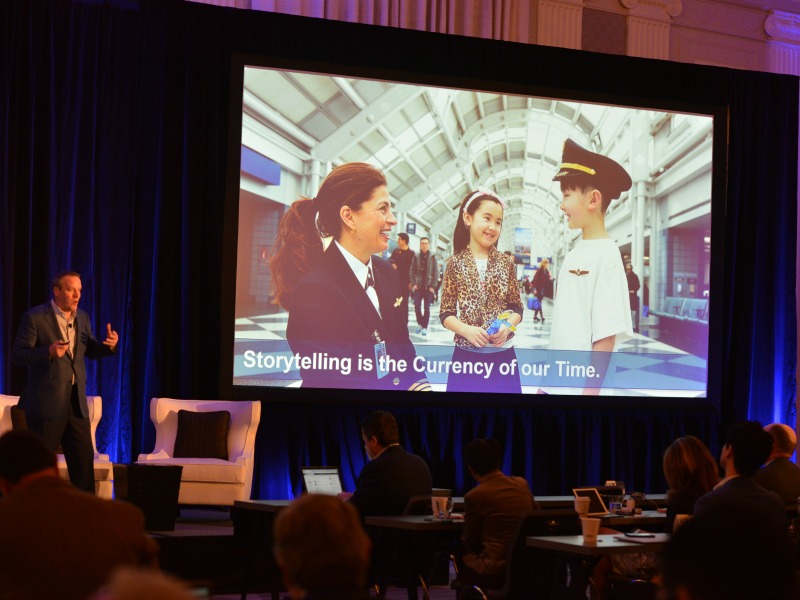Arun Sudhaman 16 Feb 2017 // 5:20PM GMT

CHICAGO — Companies looking to recover trust in their brands should begin by listening to their employees, heard delegates at the North American In2 Innovation Summit in Chicago today.
United Airlines corporate communications SVP Jim Olson pointed out that his company's turnaround strategy over the past 12 months began with the simple admission that it needed to re-earn the trust of its employees. "You can’t recover the brand until you have the trust of your own people. That change and transformation has to start from the inside out," he said, noting that United CEO Oscar Munoz began the strategy by "listening and seeking to understand what the concerns are of employees."
"If you want to change the conversation, you have to simply listen," explained Olson, pointing to a platform called Airtime that the company used to discover complaints and suggestions. "We were able to convert that feedback into action."
Once United better understood the reputation challenges it faced, added Olson, it was able to clarify a shared purpose and values in line with its stakeholders. A specific focus on storytelling (rather than just content), then helped to "stir souls" as Olson put it, bolstered by the hire of Dana Reinglass as chief storyteller.
Any transformation efforts like these, noted ConAgra chief communications officer Jon Harris, can only occur if a company takes its relationships seriously, even in a digital era that sometimes downplays the value of personal interaction.
"In our business, relationships are our currency," said Harris. "The time to make friends, is not when you need them…it’s always."
Harris believes that social media and technology should be used to make relationships more tangible, rather than transactional. He believes there are six factors that senior communications should always keep in mind as they attempt to build beneficial relationships with key stakeholders:
-
You are only as good as your content.
-
Know that your stakeholders are people and treat them accordingly. "Journalists are real people who appreciate candour…not unlike the analyst community, customers and lawyers. If you don’t do your talking for you, someone else will and you may not like what they say."
-
Know thy audience, understand their needs. "You can do research where you get the chance to know people via their online persona."
-
Be available, accessible, trustworthy, knowledgeable and resourceful.
-
Treat relationships as long-term, regularly nurturing and strengthening them. "Good things take time. I know people who were interns who are now executive producers as talkshows. You do it because it’s the right thing to do."
-
Pre-existing credibility gives you the benefit of the doubt.
Ultimately, added Harris, "it really is about being accessible, available 24/7. If we’re not, then we are not doing our job."


































.jpg)

















